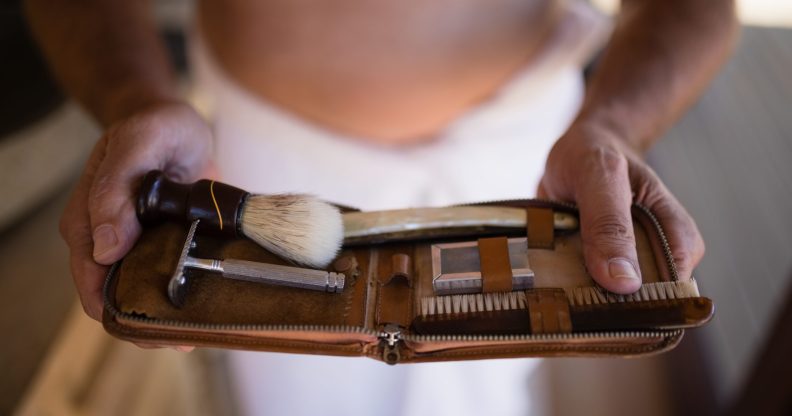Majority of queer men and women refuse to have sex with a partner with ungroomed pubic hair, eye-opening study says

To shave or not to shave pubic hair? Now that is the question. (Stock photograph by Elements Envato)
It seems that, for queer men and women, a partner’s hairstyle is pretty important… but we’re not talking about the hair on your head here.
An eye-opening study found that, when it comes to pubic hair, more than half of queer men and women would refuse to have sex with a partner who is ungroomed, you know, downstairs.
The study from Save.Health surveyed 1,207 people, where around 11 per cent were queer men and 11 per cent were queer women.
Around 58 per cent of queer men and 65 per cent of queer women told survey taskers that they believe grooming their pubic hair makes them more sexually attractive
To add to this, 51 per cent of queer men and 59 per cent of queer women said they were not willing to have sex with a partner who is ungroomed.
Of course, when it comes to pubic hair, the researchers stressed: “Our recommendation, in true Lizzo form, if they don’t like your natural hair, kick them out the door.”
Study finds majority of both queer men and women sport a ‘moderate’ amount of pubic hair.
Researchers found that around five per cent of gay men are clean-shaven, while around 69 per cent have “a little or moderate amount of hair”.
For queer women surveyed, they explained that they felt pressured to groom their pubic hair, far more so than men.
Moreover, the study continued, around two out of 10 queer women shaved their pubic hair completely. Around 54 per cent trimmed, and 24 per cent had full or natural pubic hair.
Oral sex on a partner with “ungroomed pubic hair” proved the most divisive. As around 51 per cent of queer men and 59 per cent of queer women would flat out refuse to give their partner oral.
Skyler Acevedo, a member of the creative team for Save.Health, told PinkNews: “With Pride Month quickly approaching on Monday, my team wanted to explore a light-hearted, yet slightly taboo topic.
“We decided to survey 1,000+ individuals of various sexual orientations to see how their private grooming habits and partner preferences differ.
“We were most interested to see how personal grooming correlates with relationship satisfaction, and that it can be a dating deal-breaker across all orientations.”

